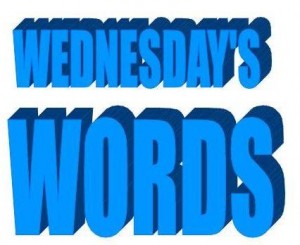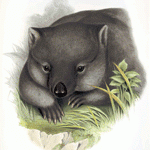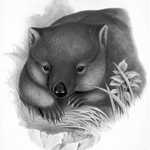Wednesday’s Words: Almost Exactly
 My mother died almost exactly three years ago. To understand the humor rather than the pathos behind that sentence, I’ll have to tell you a bit about my mother. She spoke with perfect diction, in unstilted, unaccented English, and she loved words and word games, especially the kind of game where you take a word or phrase and find as many smaller words as possible. For example: in “almost exactly” you can find most, call, cell, yell, exact, alas, etc. (Me? I hate that game, perhaps because I could never win when I played with her.)
My mother died almost exactly three years ago. To understand the humor rather than the pathos behind that sentence, I’ll have to tell you a bit about my mother. She spoke with perfect diction, in unstilted, unaccented English, and she loved words and word games, especially the kind of game where you take a word or phrase and find as many smaller words as possible. For example: in “almost exactly” you can find most, call, cell, yell, exact, alas, etc. (Me? I hate that game, perhaps because I could never win when I played with her.)
It came as a shock to me when I realized as an adult that my mother was a first generation American who grew up speaking a language other than English. I always knew that, of course, but as a child you accept your mother for who she is without seeing her in the broader context of life. We often think of first generation Americans as people who have a rough time speaking English (or who speak rough English), but neither she nor any of her siblings had a hint of that other language in their voices.
She raised her family with a respect for language. No slang at our house. No “ain’t” or “we got no” or any other example of language slippage. She was strict, and we children seldom talked back, but there was one thing we all argued about with her: “almost exactly.” She claimed “exactly” had no degrees. A thing was either exact or almost. The rest of us knew the truth: there is a world of difference between almost and exact. And therein lies “almost exactly.”
Though occasionally I use “almost exactly” in speech, I try not to use it in my writing. It’s one thing to use such a construction when talking and something else entirely to commit it to the permanency of writing, and I don’t want to meet her in some afterlife and have her start in on that old argument.
On the other hand, it might be nice.
(Wednesday’s Words is a weekly feature of this blog. Since everything pertains to words in one way or another, Wednesday’s Words is synonymous with life.)



Great article, Pat! My mother was from West Virginia, and determined that none of children would have that accent. “Ain’t” (pronounced “haint” by the rest of her family) was enough to get one’s mouth washed out with soap. I do use “almost exactly” on occassion in speech, but try not to do it often. The phrase that drives me nuts is any sort of modifier with “unique”, as in “very unique”. Um, no. Unique stands alone. Always.
As a fan of language I appreciate your post. It was terrific and a nice vignette of your mother. Your last line speaks volumnes to me.
volumnes = volumes
The days are up to you. I’d like to see us with some constants so we know ceaitrn days are always covered. Beyond that, I don’t see why authors can’t just post whenever they’ve got an idea.(BTW, I’m working on that huge font in the responses to responses.)
Interesting post, Pat. Like your mother, I like word games, but I use slang constantly. It’s like learning a constantly evolving new language. I feel like I’m getting a present when I discover a new slang word. Some time it’s a vile present, but it’s almost always interesting. Are there variations of always, then?
I hadn’t thought much about almost exactly but I guess I’ve heard it and it makes perfect sense. To me it seems to say that while we know something can’t be exactly the same as something else—because of circumstances or other limitations—it’s so close that except for those obvious limitations, one couldn’t tell the difference.
Words are marvelous.
I’m looking forward to Wednesday’s Words every week, Pat.
Your posting is abutoslely on the point!